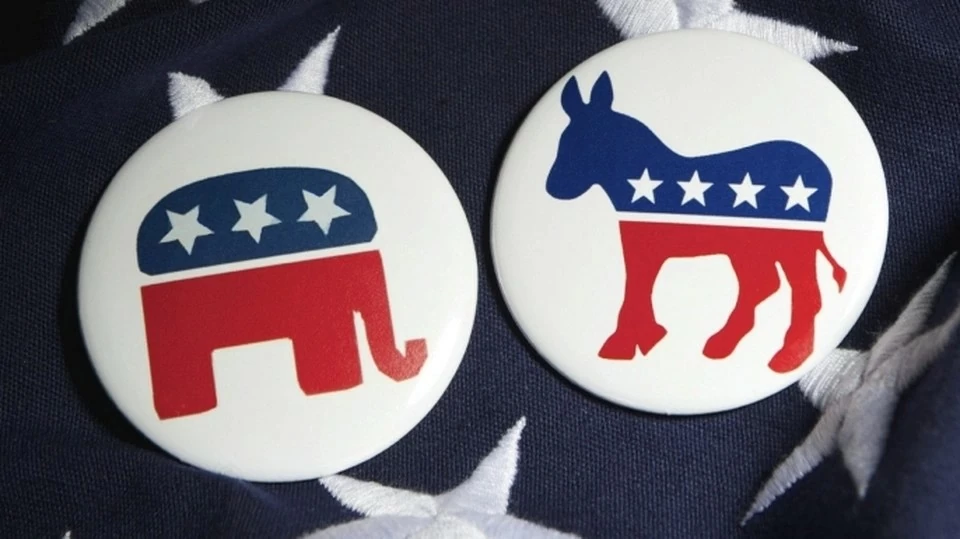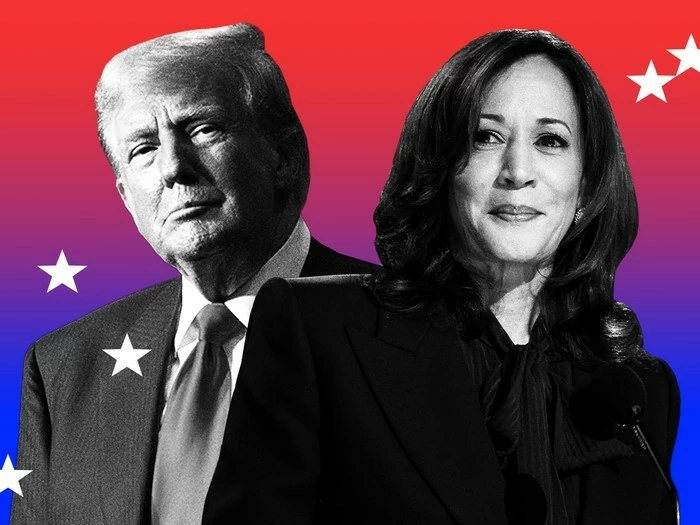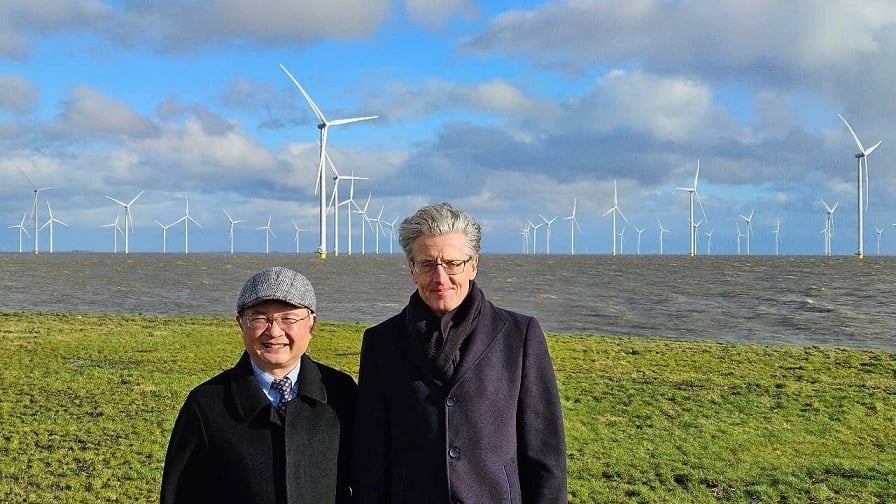In less than 10 days, the race between the Republican and Democratic presidential candidates will be over and one of the two parties will continue to lead the United States. But why can only a Democratic or Republican candidate become the President of the United States?
 |
| The Republican Party's elephant symbol (left) and the Democratic Party's donkey symbol. (Photo: History) |
Just like in the 59 previous quadrennial elections in the United States, as election day approaches, dissatisfaction with the two major party presidential candidates often emerges.
Many Americans have considered voting for a third-party candidate, hoping that if he or she gets enough votes, the Democratic-Republican duopoly will be broken.
But the problem is not that third-party candidates will not win this globally watched election, but that they cannot win.
The reason why a non-Democrat or non-Republican candidate cannot win has nothing to do with Trump or Harris, but because under the current American system, there is no good reason for voters to vote for a third-party candidate. This has nothing to do with Republican and Democratic conspiracy, but with a basic political science concept called “Duverger’s Law.”
The Law of Politics
In the 1950s, French political scientist Maurice Duverger asserted that what was happening was almost a law that existed in politics. He demonstrated that election results and party systems were determined by electoral institutions and the way votes were counted.
Simple plurality electoral systems, like the US, create two-party systems. Proportional representation systems, like those in Europe and Latin America, create multi-party systems. This makes sense. In a proportional representation system, a person votes for a party that reflects their ideology. If that person is a Green or a Libertarian and their party wins 15% of the vote, then they win 15% of the seats in the legislature.
Since there is no reason not to vote according to one's conscience, there can be many different parties across the ideological spectrum. But in America, the country is divided into states and congressional districts, and whoever wins the most votes wins.
This is a winner-take-all system. The winner gets 100% of the representation and the loser gets nothing. Everyone who runs for office – Greens or Libertarians or other third parties – gets nothing. The inevitable result is a system with two entrenched political parties.
Thanks to the Electoral College, Duverger's Law also applies to US presidential elections. With the exception of Nebraska and Maine, statewide presidential elections follow the same winner-take-all logic.
To break the two-party duopoly, a successful third-party candidate faces the impossible task of somehow erasing voters' core partisan identities as "Republican" or "Democrat," identities that give meaning and direction to people's political decisions.
A successful third party would have to run a campaign strong enough to defeat Democrats in blue states like New Jersey and Republicans in red strongholds like Kansas. And that’s impossible. It’s also why every attempt to create a moderate, centrist, or coalitional alternative—from the Reform Party and the Unity Party to “No Labels” and Andrew Yang’s Progressive Party—has struggled or collapsed or is doomed to collapse.
 |
| The 2024 US Presidential election is a historic confrontation between Democratic candidate Kamala Harris and Republican candidate Donald Trump. (Source: Getty Images) |
Vote for conscience
Disaffected voters have long been lectured by politicians, pundits, and even the aliens on “The Simpsons” that voting for a third-party candidate is a waste of votes—or worse, a corrupting of the election. But third-party votes are not insignificant, since “voting your conscience” for a third-party candidate would be a disservice to either the Democratic or Republican parties.
Even before Donald Trump's MAGA campaign revamp, the GOP was an uncontrollable "monster" with two heads in one body: the hard-core Republicans versus the "Tea Partiers." The two heads rarely get along, as the repeated government shutdowns have proven.
So why didn’t the Tea Party simply split from the GOP? With 24% support in the 2010s, the Tea Party could have become a very influential third party in a proportional representation system. But with winner-take-all elections, that would be political suicide. If the Tea Party saboteurs took 24% away from Republicans, every competitive election nationwide would flip to the Democrats. The ensuing blue wave would have swept away both the Tea Party and the Republicans.
Or consider Bernie Sanders. Why did a self-described independent socialist run for president in 2016 and 2020 as a Democrat? Ultimately—as Duverger suggests—because it’s easier to work within two-party institutions than against them. Echoing his “two-step Bernie” approach in Vermont, Sanders would run in the Democratic primary to fend off Democratic challengers, then switch to “independent” to face his Republican opponent in the general election. Had he run as an independent, he would have been a traditional third-party spoiler, splitting the Democratic vote and allowing Republicans to win easily.
Finally, consider the most successful independent presidential campaign in recent memory. In 1992, H. Ross Perot won 19.7 million votes (or 19%) nationally, finishing second in Maine and Utah. But again, second place meant nothing. With millions of votes and $64 million spent, the populist Texan won no electoral votes and would have handed the victory to Bill Clinton.
In every case, the third-party opponent lost, just as Maurice Duverger had pointed out. And so far, and probably for many more US elections, no amount of wishful thinking will be able to break his iron rule.
According to Duverger and the reality of what is happening, only electoral reform—including abolishing the Electoral College—is the only way to promote viable third-party alternatives, not the delusional self-affirmation of a useless protest vote. But to do that, America will inevitably have to go through many elections in which the final winner is either a Democrat or a Republican.
Source: https://baoquocte.vn/the-us-president-is-the-resistance-between-democracy-and-cong-hoa-291612.html



![[Photo] Closing of the 11th Conference of the 13th Central Committee of the Communist Party of Vietnam](https://vstatic.vietnam.vn/vietnam/resource/IMAGE/2025/4/12/114b57fe6e9b4814a5ddfacf6dfe5b7f)


![[Photo] Overcoming all difficulties, speeding up construction progress of Hoa Binh Hydropower Plant Expansion Project](https://vstatic.vietnam.vn/vietnam/resource/IMAGE/2025/4/12/bff04b551e98484c84d74c8faa3526e0)


























































































Comment (0)